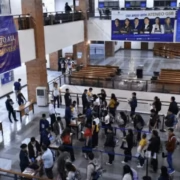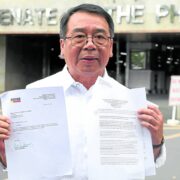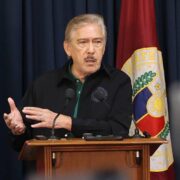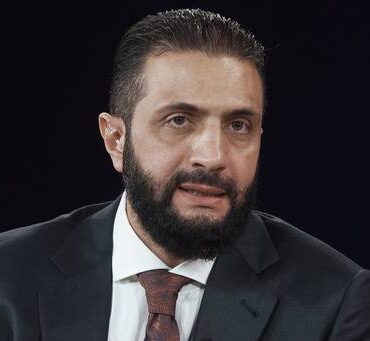An Open Letter to Israeli Ambassador Dana Kursh

May I congratulate you on your recent assignment as the Israeli ambassador to the Philippines and welcome you warmly to our country. Israel and the Philippines have shared a special relationship over many decades, which began with the Philippines welcoming Jewish families seeking refuge from war-torn Europe and the Holocaust.
I recognize you as the official representative of an important country that ratified the UN Convention on the Rights of the Child on Oct. 3, 1991, making it a signatory bound by its provisions. Israel is committed to implementing the rights and protections outlined in the convention within its national laws and policies. I also understand that you are a champion for culture and education.
I was appointed in 1993 to head the newly created Unicef Area Office for Jordan, Syria, and the Occupied Territories (West Bank and Gaza), soon after the Oslo Peace Agreement. We aimed to promote and protect the rights of children in light of the challenges of the new governance frameworks. When I left Amman in 1995, it seemed that promising initiatives were emerging. However, in recent years, the situation of children in the West Bank and Gaza has clearly worsened. The UN Committee on the Convention on the Rights of the Child has repeatedly cited child rights violations in the West Bank and Gaza, including cruel, inhuman or degrading treatment. In Gaza today, mere survival for children is in doubt. Their access to food, water, and essential health care is practically nonexistent. There is no room for schooling or play. They suffer from intensive bombing and forced displacement. Too many children have died or been maimed or injured and lost family members. Fear and trauma are their daily subsistence.
On Sept. 4, 2025, Unicef called for the international community to do everything possible to prevent a catastrophe in Gaza City as Israel ramps up military operations ahead of a planned full takeover. Tess Ingram, communication manager for Unicef’s Middle East and North Africa regional office, described the place as “a city of fear, flight, and funerals.”
Unicef continues to call on Israel to review its rules of engagement to ensure that children are protected, and for Hamas and other armed groups to release all remaining hostages. Ingram underlined the need for Israel to allow sufficient aid to enter, while humanitarians must be able to safely reach families where they are.
Ingram’s final plea was for the international community, especially the US and stakeholders with influence, to use their leverage to end the war now “because the cost of inaction will be measured in the lives of children buried in the rubble, wasted by hunger and silenced before they even had a chance to speak.”
On Sept. 12, 2025, the Philippine government voted in favor of a UN resolution backing a two-state solution to the Palestine-Israel question. At the July 30 conference that led to the declaration, Ambassador Antonio Lagdameo expressed support for “a definitive path” to peace. The Philippines had condemned the Hamas attack on Israel in October 2023 and later affirmed its readiness to form part of a UN-led peacekeeping and/or humanitarian contingent in Gaza, with peacekeepers, teachers, and/or medical workers. However, on Sept. 13, 2025, Prime Minister Benjamin Netanyahu declared: There will be no Palestine.
Madam Ambassador, the continuing Israeli offensives in Gaza and the West Bank strike me as parallels to the Jewish experiences during the Holocaust. Pogroms, forced displacements, concentration camps, starvation, death chambers, all part of ”The Final Solution.”
These parallels boggle my mind. With the Israeli decision that “There will be no Palestine,” pray, tell me, Madam Ambassador, what happens to the children now?
VICTORIA RIALP,
NGO Tahanan Sta. Luisa
For letters to the editor and contributed articles, email to opinion@inquirer.net

















